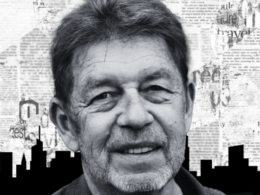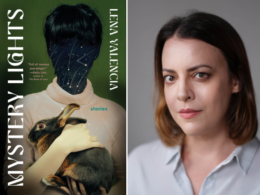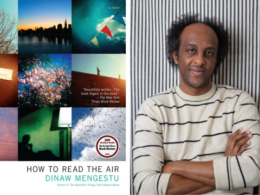
The River, The Town by Farah Ali (Dzanc Books, 2023)
There’s nothing speculative about Farah Ali’s climate fiction. Set in a rural town in Pakistan between the years 1966 and 1998, her debut novel, The River, The Town (Dzanc Books, October 2023), zooms in on how a changing planet impacts the vulnerable, attenuates the bonds of family and community, and drives people from their ancestral homes.
After years of devastating drought, Baadal leaves his village and his parents’ disintegrating marriage to search for opportunity in a nearby city with Meena, a strong-willed and independent woman who recently escaped her abusive husband. But between their grueling work schedules, family tension, and the omnipresent threat of impoverishment, the pair struggles to find a foothold in their new home, weathering the daily challenge of keeping their heads above water.
“The River, The Town shimmers like a clear, blue stream,” writes author Rachel Beanland. “[It] will force you to rethink everything you ever thought you needed. Ali is a talent, and where she shines is in her ability to blend the catastrophic with the everyday.”
Below, Ali reflects on three American authors whose work watered her imagination and gave rise to her provocative, deeply humane debut.
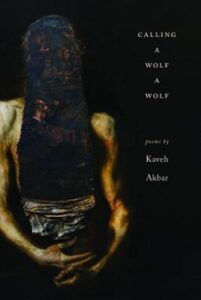
Calling a Wolf a Wolf by Kaveh Akbar (Alice James Books, 2017)
Calling a Wolf a Wolf and Pilgrim Bell by Kaveh Akbar
Calling a Wolf a Wolf and Pilgrim Bell by Kaveh Akbar are always on my table. The poems in the first book have the urgency of the poet trying to save himself—long lines with little to no punctuation—while the ones in the second book are an exercise in forcing a stillness between words and lines. Together, those books speak to a caught-up-in-a-storm me and a post-storm me, as if they are at the same time listening and talking to me.
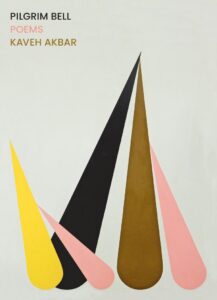
Pilgrim Bell by Kaveh Akbar (Graywolf Press, 2021)
I heard a talk by Akbar one summer. He called it “Lean into Bewilderment.” He spoke about writing without trying to find solutions. He says the same in this conversation with Camille Dungy in Orion about Pilgrim Bell: “So much of this book is about me trying to teach myself. . . trying to learn how to sit in mystery without trying to resolve it. To sit in uncertainty without trying to resolve it.”
I find that beautiful and calming and exciting. Imagine writing to learn more about the complexity of a situation without the anxiety to give it a neat solution?
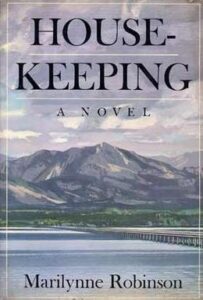
Housekeeping by Marilynne Robinson (Farrar, Straus and Giroux, 1980)
Housekeeping and Gilead by Marilynne Robinson
The discovery of Marilynne Robinson came to me like a gift. I read her when I needed those kinds of words the most in my life. They mattered to me first personally and then in what I had been trying to write. Gilead and the others that follow it are beautiful, and Housekeeping is a phenomenon.
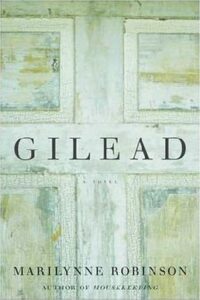
Gilead by Marilynne Robinson (Farrar, Straus and Giroux, 2004)
In whatever she writes, Robinson creates something lovely and fragile. There is the sense that though the characters walk on solid ground, that ground can shift in imperceptible ways, causing them to feel the slightest wariness of their own happiness.
I felt altered as a person after reading Housekeeping. Robinson used what Emerson called the “transparent eyeball” to give her narrator that quality of being everywhere. I had never read anything like that before.
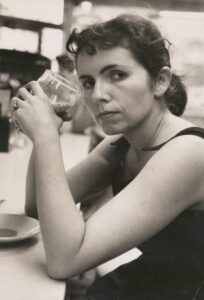
Grace Paley (New York Public Library)
Grace Paley
I can’t not talk about Grace Paley. As a reader, I’m moved by the drama of her short stories and her characters’ concerns. As a writer, I find her work to be a lesson in language—such vast emotions shown in a few pages.
Sometimes a short story by her contains a novel’s worth of living by the people in it. I sometimes find myself re-reading a line or a passage because it is so breathtaking.
Farah Ali grew up in Karachi, Pakistan, and currently lives in London. Her work has been anthologized in the 2020 Pushcart Prize and received special mention in the 2018 Pushcart anthology. Her debut story collection, People Want to Live, was published by McSweeney’s in 2021, and her stories have appeared in VQR, Shenandoah, The Arkansas International, MQR, The Southern Review, Kenyon Review, Copper Nickel, and others.
